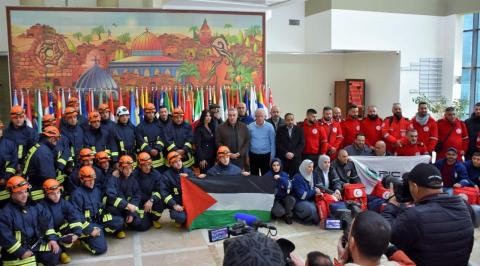
Last week’s massive earthquake in southern Mexico left 91 people dead and damaged tens of thousands of houses as residents continued to suffer through aftershocks.
The 8.1 magnitude quake off the coast of Chiapas state was stronger than a 1985 temblor that flattened swaths of Mexico City and killed thousands. However, its greater depth and distance helped save the capital from more serious damage.
Some two million people have been affected by last Thursday’s quake.
Aftershocks continued into Sunday, including a 5.2-magnitude jolt, and scores of people were wary about returning to fragile buildings hammered by the initial tremor, sleeping in gardens, patios and in the open air.
Local officials said they had counted nearly 800 aftershocks of all sizes since the big quake, and the US Geological Survey counted nearly 60 with a magnitude of 4.5 or greater.
Piles of rubble lay strewn around damaged streets, where the shock was still visible on the faces of residents.
On Saturday, authorities in the southern state of Oaxaca said there were 71 confirmed fatalities there, many of them in the town of Juchitan, where the rush to bury victims crowded a local cemetery at the weekend.
Television footage from parts of Oaxaca showed small homes and buildings completely leveled by the quake, which struck the narrowest portion of Mexico on the isthmus of Tehuantepec.
Oaxaca Governor Alejandro Murat told Mexican television the quake hit 41 municipalities and had likely affected around one in five of the states 4 million-strong population.
"Were talking about more than 800,000 people who potentially lost everything, and some their loved ones," he said on Sunday.
In Juchitan alone, more than 5,000 homes were destroyed. Hundreds of thousands of Mexicans were temporarily left without electricity or water, and many in the south were evacuated from coastal dwellings when the quake sparked tsunami warnings.
In Chiapas, some 41,000 houses were damaged, governor Manuel Velasco said, estimating nearly 1.5 million people were affected.
President Enrique Pena Nieto declared three days of national mourning and pledged to rebuild shattered towns and villages.
However, some residents interviewed expressed frustration that the poor southern regions were still not getting the help they needed from the richer north and center of Mexico.
Juchitans downtown streets grew increasingly congested Sunday as dump trucks and heavy equipment hauled away debris and pushed smaller piles of debris into larger mountains of rubble.
Teams of soldiers and federal police with shovels and sledgehammers fanned out across neighborhoods to help demolish damaged buildings. Volunteers, many teens from religious or community groups in surrounding towns that were not as severely hit, turned out in force to distribute water and clothing or lend a hand.
Help was slower to arrive in Union Hidalgo, a town of about 20,000 people about 30 minutes to the east. Collapsed homes pocked neighborhoods there, and the town lacked electricity, water and cellphone service.
Delia Cruz Valencia stood in a puddle-filled street overseeing demolition of what remained of her sisters house next door. Her sister took their mother for medical treatment outside the city before the earthquake and had not been able to make her way back. Men with pry bars ripped away the bottom half of a brick and stucco exterior wall to rescue a large wooden wardrobe because the house was too unstable to access through the door.
Cruz said she was next door with her two daughters when the earthquake struck shortly before midnight Thursday.
"We all three hugged, but even so we were moving. We were pushed from here to there" by the rolling earth, she said.
When she reached the street, she saw a cloud of dust rising from the house her sister shared with their mother. Cruzs great-grandfather had built it a century ago.











